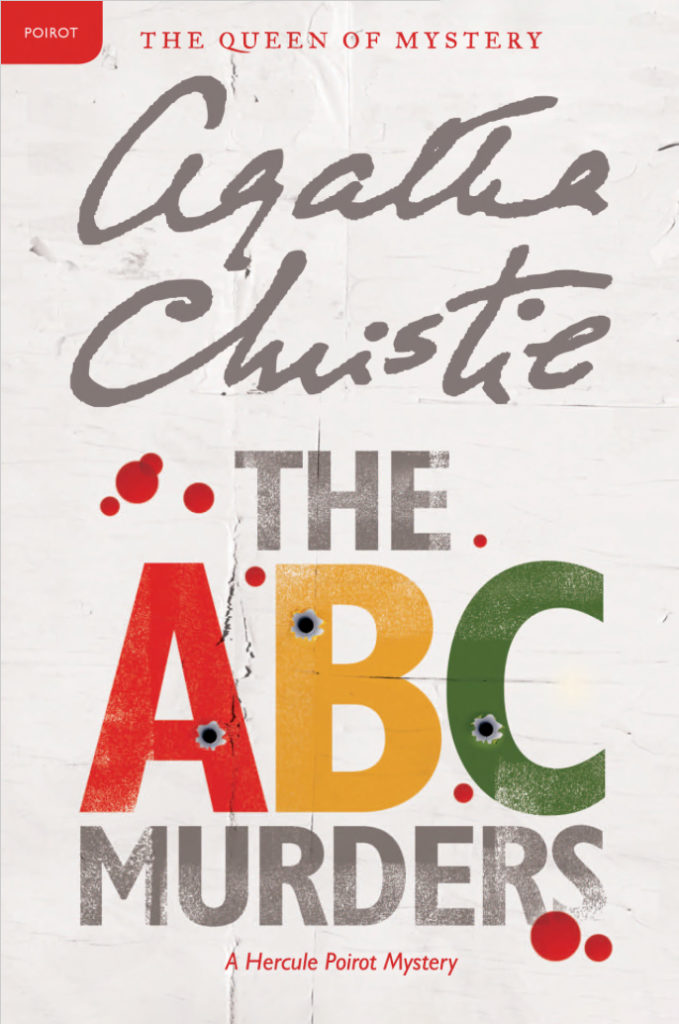The A.B.C. Murders by Agatha Christie has been reviewed by Focus on the Family’s marriage and parenting magazine.

The A.B.C. Murders by Agatha Christie has been reviewed by Focus on the Family’s marriage and parenting magazine.
In 1935, narrator Arthur Hastings returns to England and visits his old friend, the renowned Belgian detective Hercule Poirot. Poirot has received a letter about an impending murder signed “A.B.C.” Soon afterward, a woman named Alice Ascher is killed in her shop in Andover. An ABC Railway guide is found near her body.
Poirot begins receiving more letters predicting murders, signed with the same initials. Despite the efforts of Poirot, Hastings and police inspectors Japp and Crome of Scotland Yard, the murders continue. Betty Barnard, a flirty waitress, is killed in Bexhill on the beach, and a wealthy man named Sir Carmichael Clarke is murdered at his home in Churston.
Poirot, Hastings and the inspectors question the victims’ friends and family. Poirot enlists several of them to be part of his “legion” to see if their collective memories will help catch the killer. The legion members are Carmichael’s brother, Franklin Clarke; Alice Ascher’s niece, Mary Drower; Betty’s fiancé, Donald Fraser; Carmichael’s assistant, Thora Grey; and Betty’s sister, Megan Barnard. Carmichael’s widow later recalls seeing a man selling stockings, and Poirot realizes stockings were related to each crime.
A new letter to Poirot promises a murder in Doncaster. It goes awry, and the wrong man dies in a movie theater. Police receive a tip from landlords about a traveling salesman named Alexander Bonaparte Cust who was seen with his hands covered in blood. Cust is epileptic and has constant headaches resulting from a head injury he suffered in World War I. While Cust has been peddling stockings, the stocking company says they never hired him. Cust can’t remember things when he blacks out. So when the police capture him, he confesses he probably did commit the murders.
Poirot finds too many loose ends and isn’t convinced of Cust’s guilt. He soon reveals Franklin Clarke was actually the killer. Clarke wanted the family money, but he knew if his ailing sister died, his brother would likely wed Thora. If Thora had more children, Franklin Clarke would lose the inheritance to them. Franklin met Cust in a pub and realized he could use the impaired man in what would look like a serial killing spree. He pretended to set up Cust as a traveling salesman, committed murders and made sure Cust would be in all the right places to take the fall. Franklin felt he would avoid suspicion if he could make it appear that Carmichael was just one more random victim in a series of murders.
Franklin Clarke tries to laugh off Poirot’s accusation. Then he attempts to take his own life with his gun before discovering Poirot has emptied it. Once Clarke is arrested, Poirot encourages Betty’s fiancé and sister to develop a romantic relationship. He also urges Cust not to sell himself short when newspapers offer to pay him for his life story.
None
None
Chief Inspector Japp is an old friend of Poirot. The arrogant Inspector Crome looks down on Poirot and his methods of crime solving.
The Lord’s name is used in vain several times. A–, h— and d–n also appear. Several people are murdered. Cust finds himself with blood on his hands but can’t remember how it got there.
None
Get free discussion questions for this book and others, at FocusOnTheFamily.com/discuss-books.
You can request a review of a title you can’t find at reviewrequests@family.org.
Book reviews cover the content, themes and worldviews of fiction books, not their literary merit, and equip parents to decide whether a book is appropriate for their children. The inclusion of a book’s review does not constitute an endorsement by Focus on the Family.